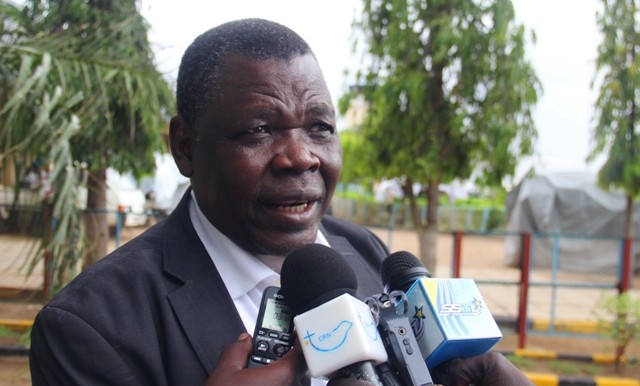South Sudan’s Justice Minister Paulino Wanawilla Unago said that South Sudan will not sign the Rome Statute, which underpins the International Criminal Court (ICC) in the Hague, Netherlands.
Local and international human rights groups have called for South Sudan to sign the Rome Statute, which would make South Sudan the newest member of the International Criminal Court.
The ICC was set up to try people accused of gross violations of human rights and crimes against humanity such as genocide when national courts are unable or unwilling to do so.
Wanawilla said that joining the ICC is not an obligation and that any offenses punishable under the Rome Statute can be punished under South Sudanese law.
“You don’t need to sign Rome Statute in order to prosecute people for the offenses that have been alleged under the Rome Statute like genocide, crimes against humanity, and other crimes,” he said. “To sign Rome Statute does not give any extra thing.”
Wanawilla was speaking on Tuesday at Juba Airport upon his return from Geneva, Switzerland where he attended a session of the UN Human Rights Council.
The minister said South Sudan was on the top of the agenda at the meeting.
“Among the topic that had been discussed are the issues related to child soldiers, sexual conflict in South Sudan, and why peace has not been achieved as expected on 5th of March,” he said, adding that he told the council that the government is not recruiting children.
He said the the Human Rights Council questioned him why the government has not prosecuted anyone involved with the ongoing civil war in which tens of thousands have been killed and nearly two million have fled their homes.
Wanawilla said that they have not prosecuted anyone because they have not received any complaints so far regarding crimes committed.
“We told them that’s because nobody came up with the complaint against anybody. In our system, if there is a case, a case will start from somebody against somebody or a group of people. So if nobody comes foward and makes a complaint you cannot go and start looking for someone to prosecute based on no complaint,” he said.
Wanawilla added that the issue of appointing a special representative for South Sudan to the Human Rights Council in Geneva has been deferred until further notice.
Radio Tamazuj Photo: Justice Minister Paulino Wanawilla speaks at Juba Airport upon his return from Geneva, Switzerland.
Related:
Milita accused of child abductions ‘is part of S. Sudan army’ (24 Feb.)
UN says ethnic massacres in S. Sudan may be sufficient for prosecutions (11 Jan.)
Document: UN releases details on April Bentiu Massacre (11 Jan.)
Document: UN releases details on April Bor Massacre (11 Jan.)
UN: SPLA-IO murdered, raped civilians in Bentiu in October (19 Dec.)
Six months after Bor and Bentiu massacres, no arrests (16 Oct.)
Report on Malakal violence puts death toll at more than 700 (2 Sep.)
Report: ‘Police building’ Massacre in South Sudan (8 Aug.)
UN human rights report: Unity State (23 May)
UN human rights report: Central Equatoria (13 May)
UN human rights report: Jonglei State (10 May)
UN human rights report: Upper Nile state (9 May)
Excerpts: UN report on human rights violations in Jonglei (27 Feb.)
Excerpts: UN report on the killings in Juba, South Sudan (26 Feb.)




